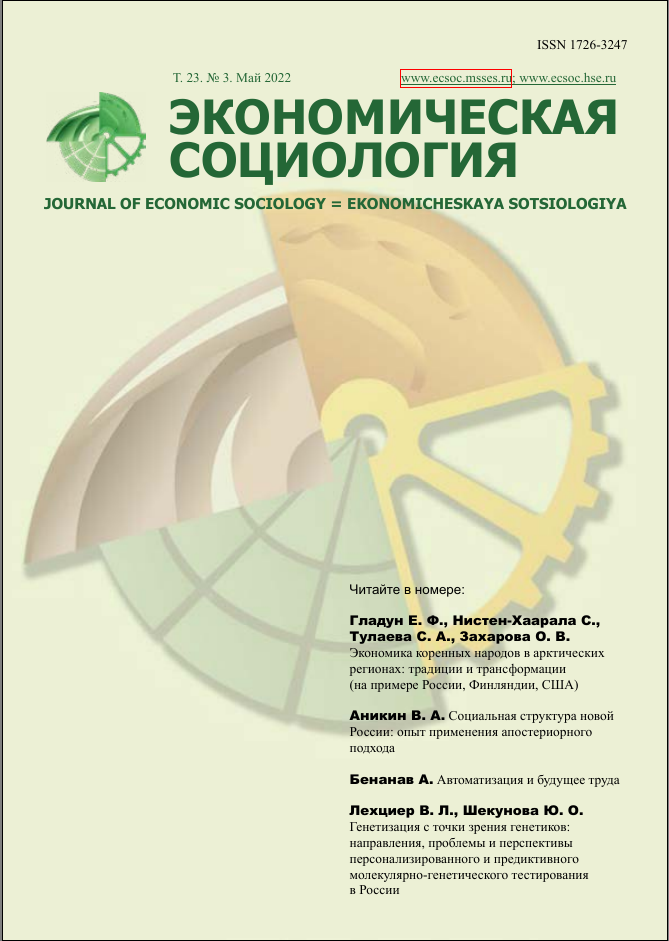Economic and Sociocultural Aspects of Transnational Migration to Russia
Book Review: Abashin S., Brednikova O. (eds) (2021) «Zhit’ v dvukh mirakh»:pereosmyslyaya transnatsionalizm i translokal’nost’ [“Living in Two Worlds”:Rethinking Transnationalism and Translocality], Moscow: NLO Publishing House.520 p. (in Russian)
Abstract
This compendium presents the transnational approach to migration in action. The book contains articles on the movements of migrants, predominantly from Central Asian countries to Russia and back. Therefore, there is a compilation of data to support the heuristic potential of the concept of transnationalism, taking into account both homelands and host societies. The authors of the publications rely primarily on qualitative research, which is not very common, and it allows a reader to ‘hear’ the voices of the migrants. Simultaneously, some statistics are also given. The book deals with a wide range of objects and topics - transnational models of existence of migrants, the role and the movement of goods in the migration context (exchange of gifts, presents and souvenirs; the migrant car), the role of remittances, migration infrastructure, the use of mobile communications, etc. The apparent focus of the book is on how social and cultural factors impact transnationalism in addition to economic factors. Most of the articles in one way or another deal with the analysis of the interaction of these factors. The authors introduced references to some economic-sociological and economic-anthropological concepts for a better contextualization of the transnational migration processes. The major critical remarks in the review touch upon the issue of duplication of some provisions of the theory of transnationalism, ignoring links with other concepts of migration, and unwillingness to take into account the discussion on the topic previously developed in Russian academia. Also, although the issue of racism and discrimination is mentioned in passing, it would be desirable for future research to explain how transnationalism influences the (non)spread of racism. This collection may be of interest to both specialists and researchers of migration processes, and a wide range of readers.













